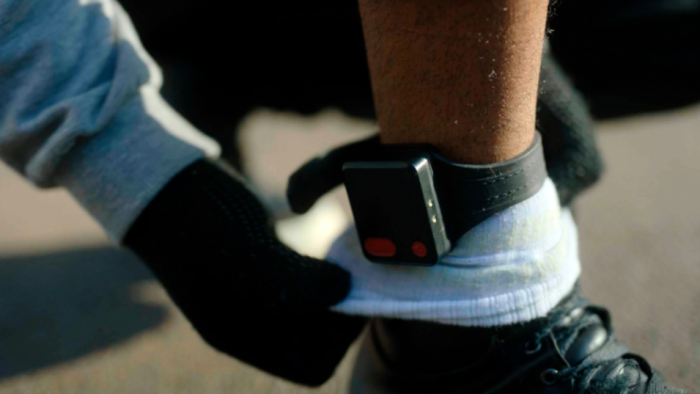UK Migrant GPS Tracking Challenges
PI filed witness evidence in two cases brought by migrants against their GPS tracking by the UK immigration authorities.
Privacy International provided witness evidence in two cases (ADL & others v SSHD, and Nelson v SSHD) in support of the Claimants' claim for judicial review.
What these cases are about
ADL & others v Secretary of State for the Home Department
This case is the first in the UK to get permission before the Administrative Court for judicial review of the Home Office's GPS tagging of migrants. The Claimants are challenging the decisions of the Secretary of State for the Home Department ("Home Office") to subject them to Electronic Monitoring immigration bail conditions.
The monitoring is carried out through Global Positioning System ("GPS") ankle trackers. These GPS tracking conditions are highly intrusive surveillance measures. They enable the Home Office to track anyone without immigration status in real time and on a 24/7 basis. The Home Office also states in its Immigration Bail guidance that it will retain the location data generated by the devices for a period of 6 years after they are removed, and may use historical trail data to assess people's claims to a right to be in the UK on the basis of their right to private and family life.
The claim challenges the imposition of GPS tracking and the retention of location data on the basis that it fails to comply with Article 8 of the European Convention on Human Rights.
Nelson v Secretary of State for the Home Department
This case was brought by Mark Nelson, a car mechanic and father of five. The claim will be heard in the Upper Tribunal. The Claimant is also challenging the imposition of GPS tagging as a disproportionate and unlawful breach of his right to a private and family life under Article 8 of the ECHR. He is further claiming that the government has no lawful authority to require people to wear broken tag (the Claimant's tag has been malfunctioning for months), amounting to an undemocratic and arbitrary exercise of power.
What PI argued in its evidence
PI's witness evidence in the ADL case demonstrated the particularly invasive nature of GPS technology and the intrusive ways it has been rolled out by the Home Office. It also explained how tracking an individual at all times can reveal highly sensitive data about them including information relating to their sexuality, political opinion, and even their ethnic origin. The evidence highlighted the frequency with which inaccuracies can arise in the location data collected by the devices with reference to research carried out by PI's technologists. It also underlined the significant consequences inaccurate location data could have for an individual's immigration proceedings. In these ways, PI's witness evidence built on the ongoing complaints before the Information Commissioner's Office and the Forensic Science Regulator, which challenge both the quality of the devices used by the Home Office and their compliance with data protection laws. Our two witness statements are attached at the bottom of this page.
PI's witness evidence in the Nelson case similarly explained the the GPS tags' functioning and data collection relying on the research conducted by PI's technologists, and exposed data reliability concerns. It also questioned the Home Office's explanation of the malfunctioning of the Claimant's tag. Our witness statement is attached at the bottom of this page.
Case updates
On 28 March 2023 the ADL & others claim was granted permission to proceed to a final hearing by the Administrative Court. The case went to a final hearing in December 2023.
The final hearing in the Nelson case was heard by the Upper Tribunal in November 2023.
Judgments
On 12 March 2024, the Upper Tribunal (Immigration and Asylum Chamber) ruled in the case of Mark Nelson that his GPS tagging had been unlawful for over a year as the Home Office failed to conduct lawful or timely reviews of Mark's tagging. This was a breach of his right to privacy under Article 8 of the European Convention on Human Rights (ECHR) and a public law error. It was also unlawful for the nearly 6 months of time during which the Home Office knew that the tag wasn't working. But the Court also found that Mark's tagging at the time of the hearing was proportionate (for reviews had been timely conducted and the tag was properly working then), and hence Mark continues to be tagged and intends to appeal this part of the decision to the Court of Appeal.
On 15 May 2024, a London Administrative Court handed down its judgment in the case of ADL & Ors v Secretary of State for the Home Department. The judgment is a great win and vindication for the individual Claimants (referred to as ADL, Fabio Dos Reis, BNE and PER) and their rights, as the Court found that the Home Office had acted unlawfully in a number of ways. For further details on the judgment, read our News & Analysis piece Two court judgments, one regulatory decision - Bricks fall around UK's GPS tagging of migrants.
